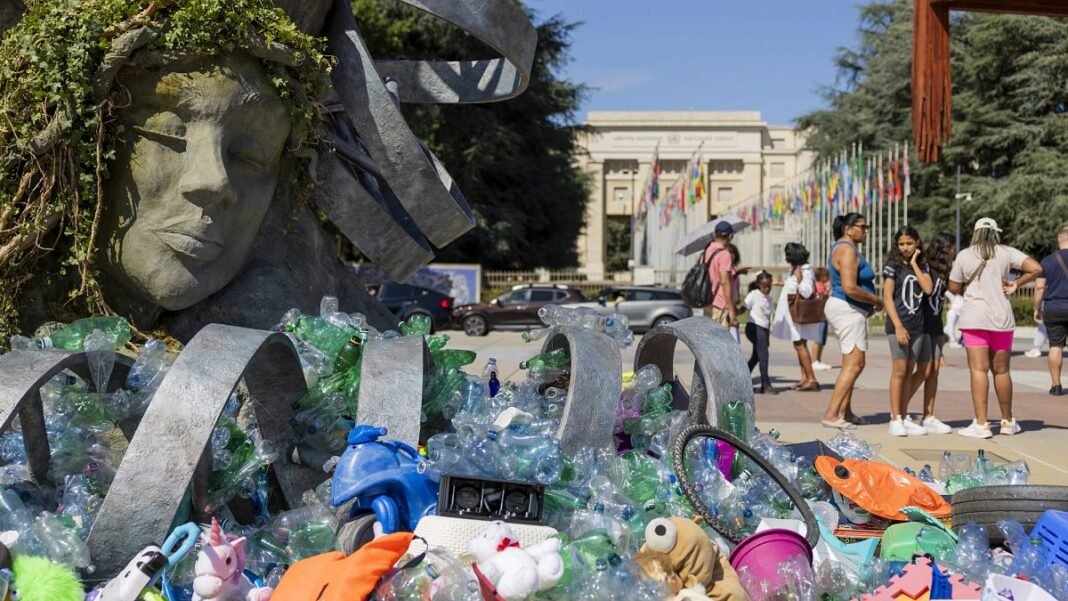Are there any global treaties to end plastic pollution within reach?
Conference in Geneva on August 5-14 Delegates from around 100 countries, including the EU, are working on the issue at source with the aim of setting legally binding targets to reduce plastic production.
“We really need to take urgent action,” Richard Thompson, a professor of marine biology at Plymouth University and appointed 100 Most Influential People in Time in 2025 for his work on microplastics, told EuroNews.
“This cannot be solved by waste management alone. There is a need to take systematic action throughout the supply chain, including the production of less plastic, especially plastics that are not essential to society.”
Meanwhile, Chinese-backed oil and gas exporters such as Saudi Arabia, Iran and Russia want to limit the scope of the text and limit it to waste management and recycling.
“Some countries are worried about the financial impact, especially if they are countries that export a lot of oil and gas, the main source of carbon in plastics. What’s more, if they are countries that produce a lot of plastic products, they are concerned about the potential financial impact,” Thompson said.
The European Commission, which is participating in the negotiations, calls for a treaty that covers the entire life cycle of plastics, from production to disposal.
It also supports the gradual phase-out of certain plastics that are harmful to human health and the environment.
460 million tons
Thompson is calling on negotiators to take action so that they can “see the next generation in the table.”
“Plastic pollution is a global environment issue. Plastic literally contaminates our planets from our deepest oceans to our best mountains. It exists in ice from the Arctic Ocean to the equator,” he says.
“The microplastics that I have spent most of the career I work in are present in the air we breathe, the water we drink, the food we eat.”
460 million tonnes of plastic are produced each year, with 81% of plastic products being wasted within a year.
Of this waste, only 9% is recycled, 20% is incinerated, over 20% is essentially abandoned, almost half of it becomes landfill.
Ambitious target
According to Thompson, an ambitious treaty must “address the entire plastic lifecycle.”
He also “sought a regulation of 16,000 chemicals used in plastic production, of which 4,000 are potentially harmful.”
He believes that the treaty should establish sustainability standards for the design of plastics and plastic products, ensuring that they can be reused or lasting, allowing less microplastics and recycled within the circular economy.
Clear labeling is also necessary to make these products easy to identify.
He also emphasizes the importance of ensuring proper funding to ensure that the poorest countries are not left behind.
But time is running out.
Negotiations involving representatives from 176 UN member states, NGOs, scientists and industry representatives are expected to end on August 14th.
The process began in March 2022, when 175 United Nations Environment Parliament countries adopted a resolution negotiating legally binding contracts and a resolution to tackle plastic pollution.
The fifth round talks held in Busan, South Korea in the second half of 2024 were initially expected to be final, but ended without agreement.
